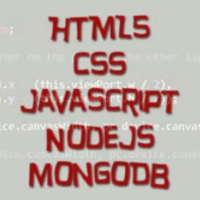State Threatens to Close Private Computer Coding “Bootcamp” Schools

Hey, you. Slacker. Sitting in your parents’ basement, wondering why four years in college didn’t land you a job after graduation. How about a 12-week crash course in writing computer software to land one of those coveted tech jobs in Silicon Valley—for just $17,780?
That’s the cost at Hack Reactor in San Francisco, one of the new breed of startup educational institutions that are proving as vexing to state regulators as Uber, Lyft and Sidecar are with their new approach to taxi service. The software boot camp companies say they are filling a desperate, immediate need in the tech industry for trained computer code writers that is not being met by traditional colleges and foreign recruits.
The state Bureau for Private Postsecondary Education (BPEE) in the Department of Consumer Affairs (DCA) wants to rein them in.
Christina Farr at VentureBeat reported this week that the bureau sent cease-and-desist orders to a handful of the schools earlier this month and gave them two weeks to conform to standards it would have imposed if they had bothered to get licensed by the state.
At least one of the schools, General Assembly, said it had been in discussions with BPEE for months about compliance. While those contacted by VentureBeat expressed a willingness to work with the state, they also argued that they should not be treated like BPEE’s usual clients: vocational schools and online education programs.
A group of them published a joint statement. “We welcome appropriate oversight in our fledgling industry, and are in close discussions with the BPPE to define our classification and take appropriate next steps.” Failure to pass muster could result in a fine of $50,000 and other penalties.
Like the ride-sharing taxi startups, the schools feel they have created a new business model, to meet the needs of a modern world, that isn’t easily governed by rules and regulations developed in Neolithic times.
“Learn to code” bootcamps have been popping up across the country. The programs usually last 10-12 weeks, and cram the learning of frameworks and languages, like Ruby-on-Rails and Full Stack, into 80-to-100-hour weeks. The “Ultimate Guide to Coding Bootcamps” says that Dev Bootcamp claimed in 2012 that 90% of its graduates received jobs within two months of completing their studies.
The Associated Press said that more than two dozen computer-coding schools have started up within the past year. They are a presence in San Francisco, Los Angeles, New York, Chicago, Toronto, Washington and Cambridge, Massachusetts, among other cities. The programs attract a diverse group of applicants, many of whom don’t have formal computer science backgrounds, but have tried to code on their own. The AP said only 10% to 20% of applicants are accepted.
So far, the schools have not generated the type of horror stories coming out of the for-profit trade schools overseen by the BPPE. Earlier this month, the bureau shut down Career Colleges of America’s (CCA) three Southern California campuses, marooning 850 students who invested time and money that may have been wasted.
That industry is full of deceptive recruiting practices, high costs, fraud and lousy student performance, which have gone on for decades and continue to get worse. But they’ve had a lot longer to work at getting lousy than the boot camps.
–Ken Broder
To Learn More:
California Regulator Seeks to Shut Down “Learn to Code” Bootcamps (by Christina Farr, VentureBeat)
Inside Hack Reactor, the Coding Bootcamp that Wants To Be the CS Degree of the Future (by Colleen Taylor, TechCrunch)
After Coding Bootcamp, Man Doubled His Salary after 9 Weeks of Studying (by Terence Chea, Associated Press)
Trade School Suddenly Closes Its Doors, Stranding Students and Unpaid Teachers (by Ken Broder, AllGov California)
- Top Stories
- Controversies
- Where is the Money Going?
- California and the Nation
- Appointments and Resignations
- Unusual News
- Latest News
- California Forbids U.S. Immigration Agents from Pretending to be Police
- California Lawmakers Urged to Strip “Self-Dealing” Tax Board of Its Duties
- Big Oil’s Grip on California
- Santa Cruz Police See Homeland Security Betrayal in Use of Gang Roundup as Cover for Immigration Raid
- Oil Companies Face Deadline to Stop Polluting California Groundwater





